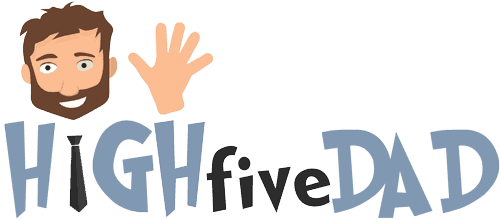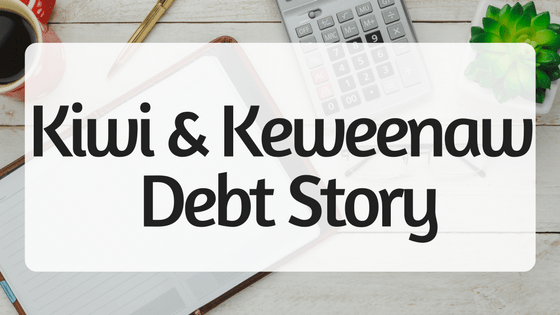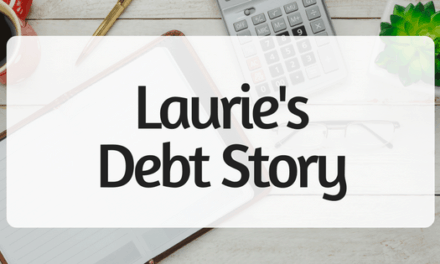Today’s Debt Story comes from Kiwi and Keweenaw from www.kiwiandkeweenaw.com
In 2010 the reality of the debt my husband and I had taken on to complete our undergraduate degrees became a reality. We were not yet engaged/married, but had been dating for four years, blended our finances, and moved in together. We both grew up in financially insecure households, and did not want to live paycheck to paycheck.
The Affordable Care Act had recently been passed and we had been told we were covered under our parents’ insurance. Mr. Kiwi suffers from chronic headaches and at the start of 2010 a six month headache hit. He decided to find a neurologist in our new city, which inevitably led to a variety of MRIs, CT scans, physical therapy, allergy testing, blood work, and prescription trials. Unfortunately, on top of the constant daily pain we started getting medical bills in the mail. Eventually we discovered his parent’s insurance had “opted out” of the mandate to cover children until they are 26 – his medical insurance had expired and we were never notified.
That increased the debt we accumulated in our first five years of adulthood, which took the next five years to payoff:
- $51,000 student loan debt
- All public loans, only $8,000 of this was unsubsidized
- Interest rates ranged from 1.9-6.8%
- $4,500 medical bills
- 0% Interest, we negotiated some of this down, which I highly recommend. We negotiated payment plans for the rest.
- Fortunately, our debt was almost evenly divided, and we blended our money as soon as we moved in together. I would not recommend blending your money if you are not yet married, but it worked for us. I enjoy dealing with financials, my husband avoids all things money (including spending it).
Graduating during the recession didn’t give us a promising job environment and we both opted to pursue graduate assistantships and Master’s degrees. This provided us with assistantships ($17,000-$30,000 depending on the year) and paid tuition. We lived frugally, car-free, and managed to save 50% of our income as grad students, which we hoped to use towards a down payment on a house.
In 2010, we decided to accelerate our debt repayment, and in five years we paid off this expected and unexpected debt while paying for a wedding, buying two cars, and buying a house. We implemented a few strategies to reduce spending and pay off our debt:
- Use the avalanche method: pay off the debt with the highest interest rate first.
- Avoid lifestyle inflation: we only drank beer at home and during happy hour!
- Told friends and family our goals, this led to us getting FREE housing for six months.
- Wait to buy a car and second car as long as possible. We both remembered the misery of driving our dad’s to work from childhood, but as adults we realized the wise choice our families had made to not overextend themselves.
- Maintain an emergency fund of at least $1,000 or your health care maximum out of pocket costs. After getting all of the medical bills, we realized the importance of an emergency fund. When the balance in our accounts increased above $1,000 we immediately made a payment on our student loans. We lived by the motto:
“You can’t spend money you don’t have, so spend it on the loans.”
- Don’t take on new debt. The exception would be medical debt for non-optional services. This includes paying your credit cards in full every month.
- Find higher paying jobs. The job market for environmental engineering still wasn’t great, and we didn’t want to move away from our families. So, we both started as interns at our first companies, making ~$15/hour. Those positions eventually led to full time jobs. We didn’t let our pride or over-qualification stop us from making an income.
- Reduce weekend trips and flights to visit friends. We have a very close-knit group of friends from college and high school who are like family to us. Initially we prioritized visiting them, but then realized this was causing a lot of stress, using up all our vacation time, and extra money. Now that we are debt free (minus the mortgage) we have started visiting friends guilt free without extending our debt repayment journey.
I was amazed by how supportive the people in our lives were to help us find ways to save money. We are open about our values and goals (i.e. to live debt free) and people overall responded positively. Overcoming the taboo of talking money is tough, but helped us bond with our support system.
While paying off the debt we contributed to meet the company match of our 401k plans when available.
Here’s where we messed up:
- Took on a loan for a nicer than we needed used car (add $12,000 to our debt)
- After we bought our house we still had $15,000 in car and student loan debt. Instead of paying off that debt, we diverted our savings into home improvement that wasn’t immediately required.
- Got two dogs. While I absolutely love our dogs, they are an expense! We can afford it now, but I shutter to think about if they had required expensive medical procedures when we were living on graduate student salaries. It would have been wiser to delay getting dogs until we had our finances in order.
Choices we made based on our personal values that extended our debt repayment:
- Spent $8,000 on a wedding, our families were very generous and covered the other $6,000.
- Contributed to our Roth IRAs. We didn’t always max them out, but there are annual limits to contributions, and we wanted to also prepare for our future while we were young and had the power of compounding interest on our side.
- Bought a house, the downpayment could have finished paying off our debt, but I love HGTV and wanted a place of our own. This increased our monthly housing costs by $500, but we enjoy our home and recognize it is a luxury.
Paying off our debt together bonded us as a family. We had many financial conversations that led to us choosing to accelerate our debt repayment. Sometimes I’m grateful for the debt we took on, since it pushed us to set goals in our early twenties. We value the flexibility having money can provide, especially as we continue to cope with chronic pain and the medical needs that come with it.
We paid off our medical, student, and car loan debt in 2015 and have shifted our debt repayments to savings. Since then we sought 24/7 intensive treatment for the chronic headaches. After being there for seven days one of the hospital administrators pulled me aside and informed me our insurance was not covering any of the stay. Having paid off our debt, I was able to stay calm, and recognize that we would be able to handle this. Eventually our insurance agreed to cover almost all of the hospital fees. Had we still been strapped with student loan payments, we likely wouldn’t have elected to seek more intensive treatment. You can’t predict the future, but having debt may limit your options.
Now, we spend money on our values, but still avoid lifestyle inflation. We save ~75% of our income, which helps give us options. We hope to have kids one day, but recognize some of the challenges we will face. Working together to pay off our debt has made these difficult conversations easier. Now that we’ve set our financial goals, we focus on our personal goals, which is much more rewarding. And we’re enjoying our time as a pack of two humans and two dogs!








Yikes, that’s crazy that you weren’t notified about the insurance cancellation! Great job paying off the debt and hitting such a high savings rate!!!
Thanks! Yeah, it was soo frustrating, but we now have learned a LOT about medical insurance.